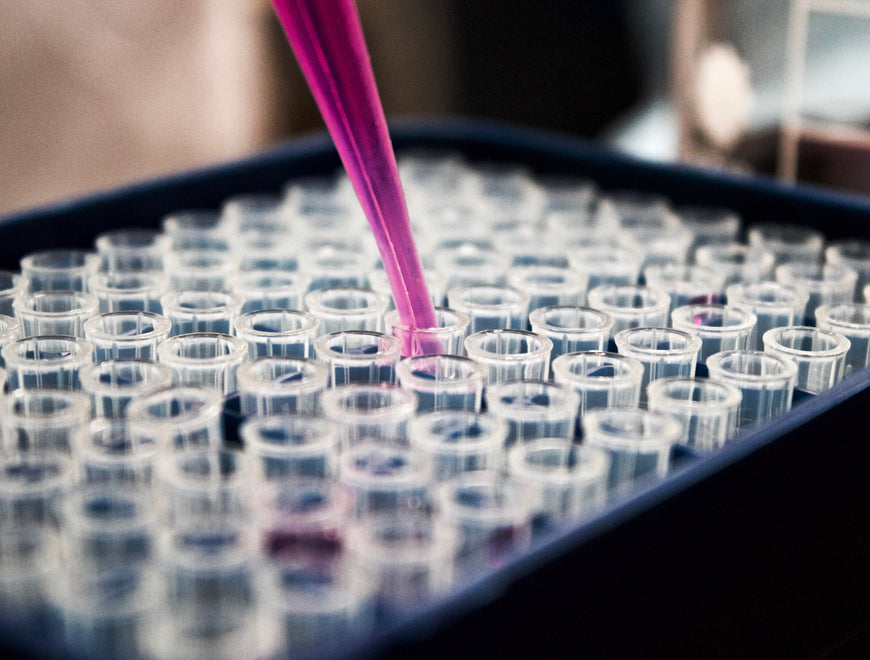Unique Yamoa™ Polysaccharides Stimulate Innate Immunity and Demonstrate Potential for Infectious Disease
In 2008, one team of researchers at the Montana State University Veterinary Molecular Biology department headed by Jodi Hedges and Jill Graff published their paper entitled, 'Polysaccharides derived from Yamoa™ (Funtumia elastica) prime γδ T cells in vitro and enhance innate immune responses in vivo'. Their study found that stimulation of purified cattle cells and monocytes with Yamoa™ resulted in the expression of genes in a manner similar to that seen with lipopolysaccharides (LPS).
LPS are molecules containing fats and carbohydrates found in the outer covering of certain bacteria. LPS produce strong immune reactions in animals on exposure and thus, are used to study immune responses or compare the immune response produced by two substances.
Thus, Yamoa™ clearly activated the innate immunity. In the same test, they found that injection of Yamoa™ led to increase in neutrophil activation and enhanced the natural immunity against the typhoid bacteria of mice and cattle used for the study. This proved that the active ingredient of Yamoa™ is a novel natural ingredient that can be used as an adjunct to innate immunity and might be used in the future to create treatments against other bacteria too.
To quote the research paper published in 'International Immunopharmacology':
‘Thus, polysaccharide agonists derived from Yamoa™ are novel innate adjuvants with conserved activity and potential application in infectious disease settings.’ The paper concluded, ‘This characterization of the immune stimulatory properties of polysaccharides derived from Yamoa™ suggests mechanisms for the anecdotal positive effects of its ingestion and that these polysaccharides show potential for application in innate protection from disease.’
The team believes that the unique polysaccharides found in Yamoa™ may be what is causing all the benefits its users are reporting.
Yamoa™ Found to Stimulate Innate Immunity and Proves to be an Effective Anti-Bacterial
Also, in 2008, the same team conducted another study on cattle, ‘Enhancing Innate Immunity in Bovine Calves by Stimulating GammaDelta T Cells with Plant-Derived Polysaccharides’. It was determined that,
‘Yamoa™ stimulated innate immunity in part by affecting the gamma delta T cells. Yamoa™ had distinct priming effects, very similar to but more robust than, that of lipopolysaccharides (LPS) on bovine, mouse and human gamma delta T cells. Yamoa™ stimulated human cells to produce cytokines [hormonal messengers responsible for most of the biological effects in the immune system] involved in innate protection.’
The same study also found that Yamoa™ and the active fraction of Yamoa™, Yam-I was efficacious for treating mice against the typhoid bacterium producing colitis, seen as a reduction in the bacterial count in mice faeces. These findings suggest that Yamoa™ has potential for positive action in asthma and infectious diseases as well.
‘This initial characterization of the immune stimulatory properties of polysaccharides derived from Yamoa™ suggests potential mechanisms for positive effects in asthma and that they have potential for application in infectious disease settings.’
Yamoa™ Polysaccharides Slant Allergic Immune Response on a Molecular Level
The latest research published in 2012 by Jodi Hedges and her team at the Department of Immunology and Infectious Diseases, Montana State University, found that certain plant polysaccharides stimulate IL-12 (Interleukin) production (immune system messengers) which indirectly stimulates IFN-gamma (interferon-gamma) production (critical for innate and adaptive immunity) from the white blood cells in the lung mucous membrane. This IFN-gamma production favors a TH1 response which has been proven to alleviate symptoms of asthma.
"We are more focused on Acai polysaccharides, because they are distinguishable from LPS (Lipopolysaccharides), unlike Yamoa. However, Acai polysaccharides and Yamoa likely have the same mechanism, and Acai PS are not available in a nifty pill, like Yamoa is. Yamoa is only shown in the first figure [see below], but is clearly having a similar effect as Acai PS. "
- Jodi F. Hedges, Ph.D. Assistant Research Professor, Immunology and Infectious Diseases, Montana State University, referring to 'Polysaccharides Isolated from Açaí Fruit Induce Innate Immune Responses.' February 28, 2011, PLOS: One.
The study corroborates that despite genetic variations, the plant polysaccharides are capable of slanting immune responses towards reduction of asthma and its symptoms right down to the molecular level. TH1 cells are helper T cells, a type of white blood cells, that are responsible to maintain immunity and good health. Excessive TH2 cells are thought to be the reason currently for allergies and asthma. Thus, an increase in the TH1 response would balance out the excessive TH2 response, reducing asthmatic symptoms.
Sources:
Polysaccharides Isolated from Açaí Fruit Induce Innate Immune Responses




